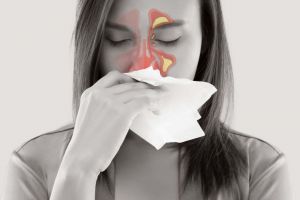Sinus Headaches
Sinus Headaches
What you need to know about
Sinus Headaches
The air-filled cavities inside your forehead, cheekbones, and behind the bridge of your nose are known as sinuses. When they become inflamed, usually as a result of an allergic reaction or an infection, they enlarge, produce more mucus, and the draining channels might become clogged.
The pressure in your sinuses builds up, causing pain that feels like a headache.
Symptoms
You’ll have a severe and persistent ache in your cheeks, forehead, or nose bridge. When you move your head rapidly or strain, the discomfort usually increases worse. You may also experience additional sinus symptoms, such as:
- A runny nose
- Your ears feel fullness.
- Fever
- Your face is swollen.
Sinus headaches are frequently confused with other types of persistent headaches, such as migraines or tension headaches. Because the medication you need depends on the type of headache you experience, determining if your symptoms are caused by your sinuses is critical. You’ll most likely develop a fever if a sinus blockage, such as an infection, is the cause.
Diagnosis
Your doctor can usually detect if your sinuses are blocked based on your symptoms and a physical exam, but in some circumstances, CT or MRI scans may be required.
Treatment
The goal is usually to alleviate your symptoms and, if necessary, to treat an infection. Antibiotics, antihistamines, and decongestants may be prescribed for a brief period of time. Inhaled nasal decongestants can also be used, but only for up to three days. Longer use may exacerbate your problems.
You can also take pain medicines, or if that doesn’t work, your doctor can prescribe corticosteroids to aid with nasal inflammation. If your sinus flare-ups are caused by an allergic reaction, you may require allergy therapy.
Simple at-home remedies, including drinking extra fluids, using a humidifier, or using saltwater nasal spray, can also help you feel better.
A device that emits micro-current waveforms can also be used to reduce sinus pain and pressure. The device’s waves target blood vessels and nerves to relieve nasal congestion and pain, and it’s available over-the-counter.
Medication overuse headaches can occur if you take decongestants and pain relievers too frequently. If you’ve been using medicine to ease your headaches for a long period, it’s crucial to check in with your doctor. Decongestants can also raise blood pressure, so see your doctor before taking one if you have high blood pressure.
They may suggest sinus surgery to remove polyps or open up narrow or chronically swollen sinuses in rare circumstances.
Allergies and Sinus Headaches
Have you ever heard that sinus headaches are caused by allergies? It’s not quite that straightforward.
Allergies can result in sinus congestion, which can induce headaches. Allergy treatment can help with congestion, but it won’t help with headache pain. The two disorders are usually treated independently. Consult your doctor to ensure you receive the proper treatment.


